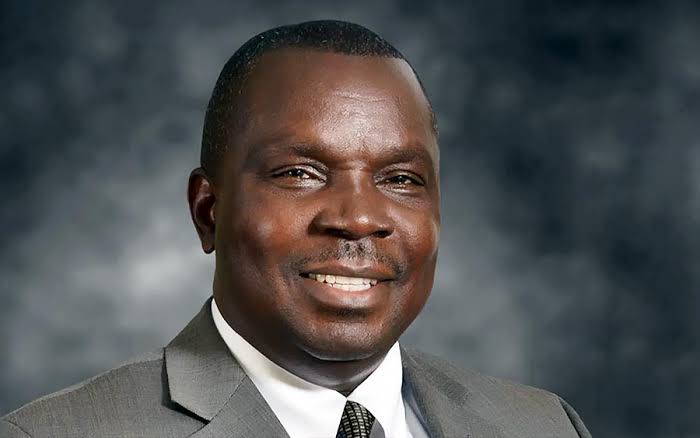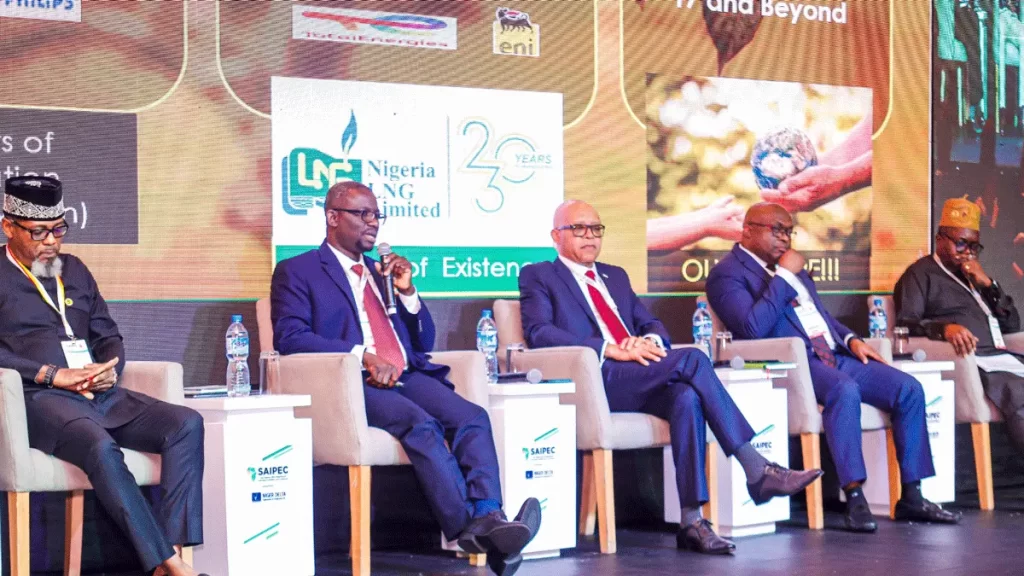
Energy Transition: Calling Africa to join same speedy train to net-zero is unfair and punitive-Participants at SAIPEC 2024

Accelerating African Content was the theme of the just-concluded eighth edition of the Sub-Saharan Africa International Petroleum Exhibition and Conference (SAIPEC) which ended last Thursday.
Specifically, SAIPEC is designed to create huge opportunities for regional collaboration and partnerships especially in the energy sector. This is because the Sub-Sahara Africa is said to be the last energy frontier and global hub. Therefore, the key enabler is to create a collaborative ecosystem between the local industry stakeholders within the Sub-region alongside the Africa continental free trade Area (AfCFTA).

AfCTA aims to create the largest free trade area in the world measured by the number of countries participating. The pact connects 1.3 billion people across 55 countries with a combined gross domestic product valued at $3.4 trillion. It has the potential to lift 30 million people out of extreme poverty, but achieving its full potential will depend on putting in place significant policy reforms and trade facilitation measures and collaboration.
SAIPEC, with local content at its core, plays a vital role in charting the pathway to developing the continent’s untapped energy, oil, and gas resources. It is an effort to ensure that Africa uses the resources that nature bestowed upon her to develop the content. More African countries have joined the league of oil and gas producers. These countries are Algeria, Libya, Angola, Egypt, Nigeria, Equatorial Guinea, Congo, Gabon, Senegal, South Africa, Chad, Ghana, Cameroon, Benin, Namibia, Sudan, Mauritania, Mozambique, and Ivory Coast.
Many of these African countries have with the discovery of oil and gas in their territories, have gradually abandoned the mainstays of their national economies and have become heavily dependent on revenue from the export of oil and gas. For these countries, oil and gas revenue constitute a vast majority of government revenue.

But the on-going shift away from fossil fuel-a hydrocarbon-containing material such as coal, oil, and natural gas, formed naturally in the earth’s crust from the remains of dead plants and animals that is extracted and burned as a fuel- to renewable energy, energy derived from natural sources that are replenished at a higher rate than they are consumed, is now a bone of contention between the African countries and their developed counterparts in North America and Europe.
The argument is that renewable energies are sources of clean, inexhaustible and increasingly competitive energy. They differ from fossil fuels principally in their diversity, abundance and potential for use anywhere on the planet, but above all in that they produce neither greenhouse gases, which cause climate change, nor polluting emissions. Their costs are also falling and at a sustainable rate, whereas the general cost trend for fossil fuels is in the opposite direction in spite of their present volatility.
Growth in clean energies, it is argued , is unstoppable, as reflected in statistics produced annually by the International Energy Agency (IEA). According to IEA forecasts, the share of renewables in global electricity supply will increase from 28.7% in 2021 to 43% in 2030, and they will provide 2/3 of the increase in electricity demand recorded in that period, mainly through wind and photovoltaic technologies.
Because of this, the international oil companies (IOCs) are no longer funding more oil and gas projects in Africa. De-funding of gas projects in order to force gas-rich African countries to stop using gas and use renewables is seen as a fault on the part of IOCs. It is seen as a deliberate measure to keep African countries under perpetual economic slavery.
Some writers and commentators see the energy transition as nothing short of imperialism. They argued that moving beyond fossil fuels, it is crucial to closely examine the linkages between fossil fuels and the wider economy, and to address the power relations within, and hierarchies of, the international energy system. This means recognizing that countries of the global South are still systematically exploited by a colonial, imperialist economy built around the pillage of their resources and a massive transfer of wealth from South to North.

While Africa countries are not totally against renewable energy, their contention is the time frame of the global energy transition. These countries have the legitimate priority to satisfy the essential needs of socio-economic development and, in particular, the eradication of poverty. Hence, the African Energy Sector Transition Programme will help African Union member states transition from using fossil fuels to renewable source of energy gradually.
Besides, they argue that contribution of African countries to the environmental degradation and their impacts on climate change is the lowest comparing to all the other regions in the World. In fact, African countries contribution to the emission of Carbon dioxide (CO2) is ranged between 3-5% of the global emission. Despite its low contribution to the emission of CO2, climate changes threaten Africa very severely
The African Petroleum Producers’ Organization (APPO), recently, said that the global pursuit of energy transition pose four imminent challenges to African oil and gas producing and dependent countries. These imminent challenges are: funding, technology and expertise, markets and energy infrastructure. It said that efforts are being made to address the challenges.
Secretary General of APPO, Dr. Omar Farouk Ibrahim said at an event recently that APPO “does not contest the science of climate change, nor are we against energy transition. What we are saying is that giving our peculiar situation in terms of socio-economic development, and the fact that the problems of climate change were caused, not by us but by the economically advanced countries of the world, using fossil fuels, calling us to join the same speedy train to net-zero is unfair and punitive”.
“This is because, should the anticipated technological breakthroughs in renewable energy research and development fail to materialise by the time they are expected to be fully deployed, and at the same time the oil and gas industry has been abandoned, leading to a shortage in global energy supplies, the little energy that is available shall be cornered by the rich countries.
“Even if Africa is able to produce oil and gas, their final destination is going to be where the purchasing power is highest, just like it has been happening since the beginning of the Russia-Ukraine war.”
“These are funding, technology/expertise and markets. The study noted that in the nearly 100 years that Africa has been producing oil and gas, our countries have been heavily dependent on foreign funding, foreign technology and to some extent expertise and foreign markets.
“The study further noted that while the world is committed to a speedy energy transition, Africa owes its people a duty to utilise its abundant oil and gas resources to provide them energy, which is the most potent catalyst for socio-economic development. In other words, Africa must create a future for the oil and gas industry,” Farouq stated.
According to him, the developed world now believes that oil and gas have no future in the contemporary world. “Because of this belief, members of this school strive, through various policies and actions, to discourage investments and research in oil and gas. At the same time, they work to promote the growth of renewables through huge investments in research and development.
Farouk said the much awaited African Energy Bank is a necessity that must kick-off before the first half of 2024 as a key vision of APPO. Farouk who made this declaration at the SAIPEC 2024 advocated for synergy among African countries, hinting that no African oil-producing country can provide the financial, technological, and marketing resources that it needs to be self-sufficient, adding that “if resources are pooled together, African countries can go far”.
He advised Nigerian oil and gas companies to be diplomatic when engaging their counterparts from other African countries and to co-opt other nationals when planning to operate in foreign jurisdictions.
He said: “You need to have diverse shareholding and include nationals from other countries when you move to other African countries to operate. Do not create the impression that you want to dominate.”
The APPO Scribe announced that the African Energy Bank will start operations in 2024 and would have $5billion capitalization and the 18 member nations of APPO have started paying up their shareholding, which is $83million per country. He affirmed that the African Energy Bank would be a veritable platform to fund oil and gas projects within the continent and mitigate the withdrawal of international financiers because of the clamour for renewable energy.

He also confirmed that APPO was working to establish international research centres of excellence in different regions of the continent, which would cater to the research needs of oil companies operating in Africa and curb their dependence on international research centres for research solutions.
He stated that APPO is working to enhance the market for African oil and gas resources and ensure that crude oil and gas resources that are produced in Africa get consumed within the African continent.
This is important because of the threat of energy transition, which is expected to substantially shrink the demand for crude oil and gas resources internationally,
“Another important and related action is the construction of a continent-wide pipeline system that could convey crude oil, refined products, and gas across different countries of the continent, he said.
In his contribution, the Founder and Executive Chairman of AA Holdings, Mr. Austin Avuru, traced the root of the global energy transition to the Arab –Israeli war of 1973. According to Avuru who is a former CEO of Seplat ,Arab oil embargo, temporary cessation of oil shipments from the Middle East to the United States, the Netherlands, Portugal, Rhodesia, and South Africa, imposed by oil-producing Arab countries in October 1973 in retaliation for support of Israel during the Yom Kippur War sparked the embargo.
The Arab oil embargo was the first oil crisis, an oil-supply disruption leading to major price increases and a worldwide energy crisis. The embargo caused the United States and Western European countries to reassess their dependence upon Middle Eastern oil.
Sharing the same view with APPO, Avuru said the speedy implementation of energy transition is unfavourable to Africa. Africa is the biggest victim of the speedy energy transition being spearheaded by the developed nations of the world. Africa is being coerced to stop the exploration of fossils, but countries on the continent, owe their people a duty to utilise the abundant oil and gas resources in their various domains for the development of their economies. Preventing them from doing this is unacceptable.



